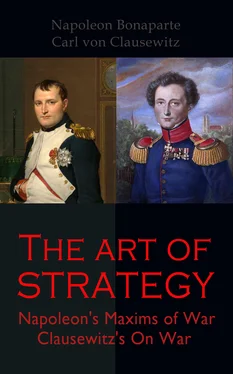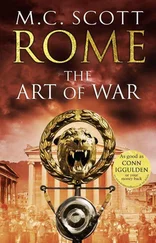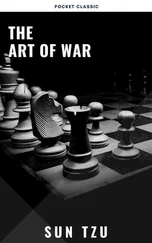Table of Contents
It is contrary to all true principle, to make corps, which have no communication with each other, act separately against a central force whose communications are cut off.
The Austrians lost the battle of Hohenlinden by neglecting this principle. The imperial army, under the orders of the archduke John, was divided into four columns, which had to march through an immense forest, previous to their junction in the plain of Anzing, where they intended to surprise the French. But these different corps, having no direct communication, found themselves compelled to engage separately with an enemy who had taken the precaution of concentrating his masses, and who could move them with facility in a country with which he had been long previously acquainted.
Thus the Austrian army, enclosed in the defiles of the forest with its whole train of artillery and baggage, was attacked in its flanks and rear, and the archduke John was only enabled to rally his dispersed and shattered divisions under cover of the night.
The trophies obtained by the French army on this day were immense. They consisted of eleven thousand prisoners, one hundred pieces of cannon, several stand of colors, and all the baggage of the enemy.
The battle of Hohenlinden decided the fate of the campaign of 1800, and Moreau’s brilliant and well-merited success placed him in the rank of the first general of the age.
Table of Contents
When an army is driven from a first position, the retreating columns should rally always sufficiently in the rear, to prevent any interruption from the enemy. The greatest disaster that can happen, is when the columns are attacked in detail, and before their junction.
One great advantage which results from rallying your columns on a point far removed from the field of battle, or from the position previously occupied, is, that the enemy is uncertain as to the direction you mean to take.
If he divides his force to pursue you, he exposes himself to see his detachments beaten in detail, especially if you have exerted all due diligence, and have effected the junction of your troops in sufficient time to get between his columns and disperse them one after the other.
It was by a manœuvre of this kind in the campaign of Italy, in 1799, that General Melas gained the battle of Genola.
General Championet commanded the French army, and endeavored to cut off the communication of the Austrians with Turin, by employing corps which manœuvred separately to get into their rear. Melas, who divined his project, made a retrograde march, by which he persuaded his adversary he was in full retreat, although the real object of his movement was to concentrate his forces at the point fixed for the junction of the different detachments of the French army, and which he beat and dispersed, one after another, by his great superiority in numbers. The result of this manœuvre, in which the Austrian general displayed vigor, decision, and foresight, secured to him the peaceable possession of Piedmont.
It was also by the neglect of this principle that General Beaulieu, who commanded the Austro-Sardinian army in the campaign of 1796, lost the battle of Milesimo after that of Montenotte.
His object, in endeavoring to rally his different corps upon Milesimo, was, to cover the high roads of Turin and Milan; but Napoleon, aware of the advantages arising from the ardor of troops emboldened by recent success, attacked him before he could assemble his divisions, and, by a series of skilful manœuvres, succeeded in separating the combined armies. They retired in the greatest disorder—the one by the road of Milan, the other by that of Turin.
Table of Contents
No force should be detached on the eve of a battle, because affairs may change during the night, either by the retreat of the enemy, or by the arrival of large reinforcements to enable him to resume the offensive, and counteract your previous arrangements.
In 1796, the army of the Sambre and Meuse, commanded by General Jourdan, effected a retreat, which was rendered still more difficult by the loss of his line of communication. Seeing, however, that the forces of the archduke Charles were scattered, Jourdan, in order to accomplish his retreat upon Frankfort, resolved to open himself a way by Wurtzburg, where there were at that moment only two divisions of the Austrian army. This movement would have been attended with success, if the French general, believing he had simply these two divisions to contend with, had not committed the error of separating himself from the corps of Lefevre—which he left at Schweinfurt to cover the only direct communication of the army with its base of operation.
The commission of this fault at the outset, added to some slowness in the march of the French general, secured the victory to the archduke, who hastened to concentrate his forces.
The arrival of the two divisions, also, of Kray and Wartesleben, during the battle, enabled him to oppose fifty thousand men to the French army, which scarcely numbered thirty thousand combatants. This last was consequently beaten, and obliged to continue its retreat by the mountains of Fuldes, where the badness of the roads could be equalled only by the difficulty of the country.
The division of Lefevre, amounting to fourteen thousand men, would, in all probability, have turned the scale in favor of Jourdan, had the latter not unfortunately conceived that two divisions only were opposing his passage to Wurtzburg.
Table of Contents
When you have resolved to fight a battle, collect your whole force. Dispense with nothing. A single battalion sometimes decides the day.
I think it here desirable to observe, that it is prudent before a battle to fix upon some point in rear of the reserve for the junction of the different detachments; for if, from unforeseen circumstances, these detachments should be prevented from joining before the action has commenced, they might be exposed, in case a retrograde movement should be found necessary, to the masses of the enemy. It is desirable also to keep the enemy in ignorance of these reinforcements, in order to employ them with greater effect. “A seasonable reinforcement,” says Frederick, “renders the success of a battle certain, because the enemy will always imagine it stronger than it really is, and lose courage accordingly.”
Table of Contents
Nothing is so rash or so contrary to principle, as to make a flank march before an army in position, especially when this army occupies heights at the foot of which you are forced to defile.
It was by a neglect of this principle that Frederick was beaten at Kollin in the first campaign of 1757. Notwithstanding prodigies of valor, the Prussians lost fifteen thousand men and a great portion of their artillery, while the loss of the Austrians did not exceed five thousand men. The consequence of this battle was more unfortunate still, since it obliged the King of Prussia to raise the siege of Prague, and to evacuate Bohemia.
It was also by making a flank march before the Prussian army, that the French lost the disgraceful battle of Rosbach.
This imprudent movement was still more to be reprehended, because the Prince de Soubise, who commanded the French army, was so negligent as to manœuvre, without either advanced guards or flanking corps, in presence of the enemy. The result was, that his army, consisting of fifty thousand men, was beaten by six battalions and thirty squadrons. The French lost seven thousand men, twenty-seven standards, and a great number of cannon. The Prussians had only three hundred men disabled.
Читать дальше












